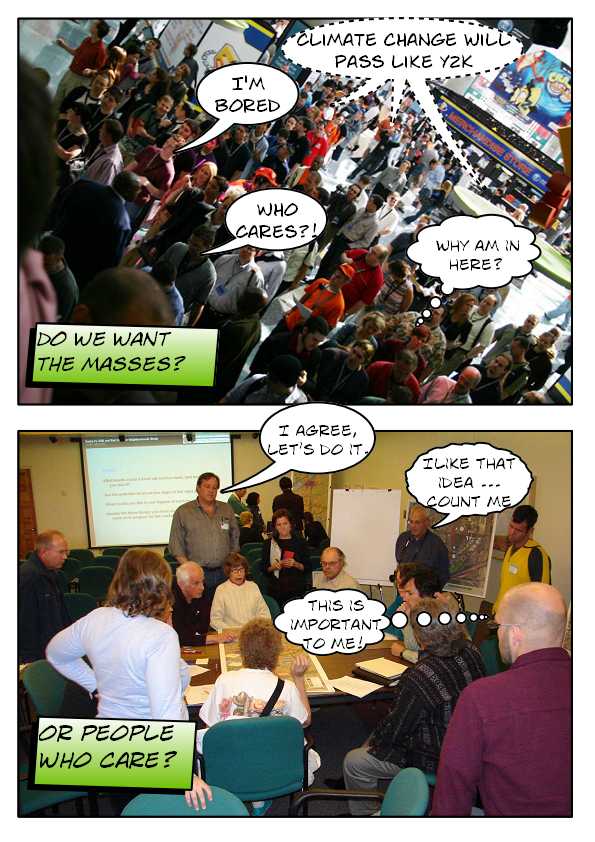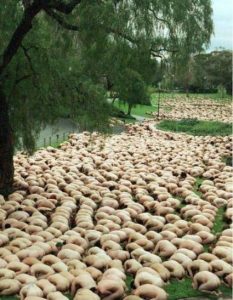How stuff spreads … and changes?
This is a post for all the “sustainability” project managers and change-agents out there. [I have created this “How Stuff Spreads” to build on the thoughts of Mark Earls who has a blog category of the same name.]
Seth Godin just posted Who vs. How Many? … it is about a story of a 14 year old kid who has attracted 45 million YouTube hits and Seth says:
“How many is not nearly as valuable as “who”, why not put that into practice?” and …
“Just because something is easy to measure doesn’t mean it’s important.”
This story is all about mass-marketing and Seth is king of the anti mass-marketing movement (and rightly so because mass-marketing doesn’t work any more). This post got me thinking …
I have been involved in running Behaviour Change projects in the “sustainability” arena for 8 years now. The most common question I get from clients and project funders is “How many people came along?” Yes, it’s easy to measure BUT really not important!”
“Whoever comes are the right people” is an Open Space principle – it is meant to alert the participants to the fact that whoever attends a session is “right” simply because they care to be there. These 4 bold words are important! Like Seth says, “How many is not nearly as valuable as who“.
So how do we put this “Who vs. How Many” into practice when staging sustainability/behaviour change projects? Here’s some random thoughts …
* Focus on having a conversation with people who care to change in the first place – the so called “unconverted” will not see your recruitment anyway! They simply don’t care about you or your project!
* A small % of those who show up also care to change others – chances are these guys know plenty of people who don’t care about you … AND … this small % may be supported/encouraged (or even trained) to influence the “unconverted” in their own peer groups. Maybe they become your recruitment tool next time. They can issue personal project/workshop invitations to people who are like them (ie. peers).
* When you have a conversation with participants (at workshops, home visits etc …), remember to tell them that their own actions may influence those around them.
From Mark Earls we learn …
Humans are Herd animals …”We do what we do because of our interaction with and under the influence of others and often without realising it.”
That will do for now. Quite a rant and more to follow on this theme of How Stuff Spreads.
Cheers
Geoff


